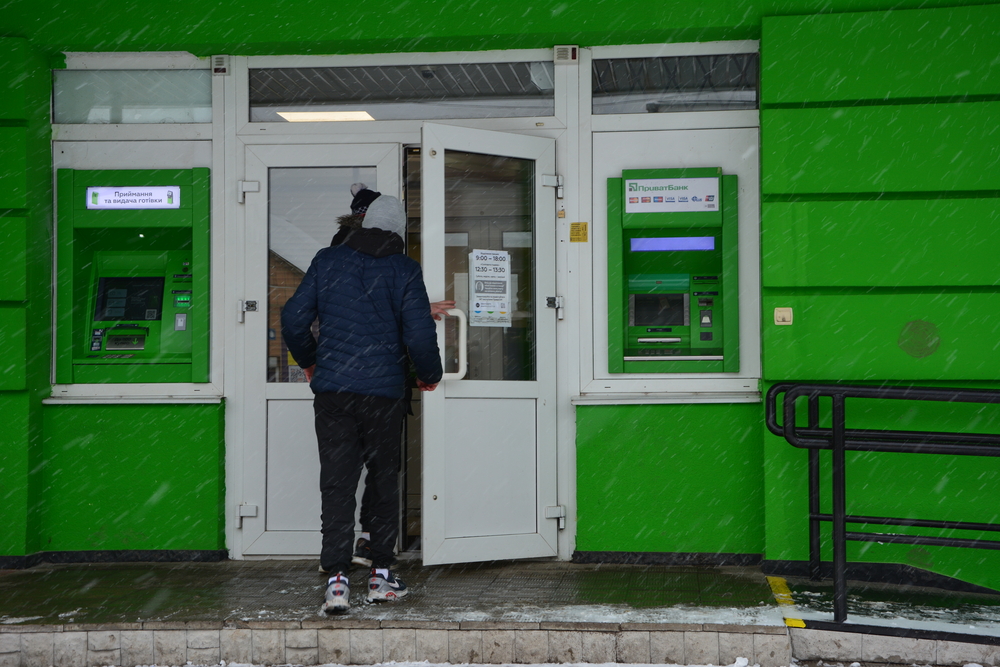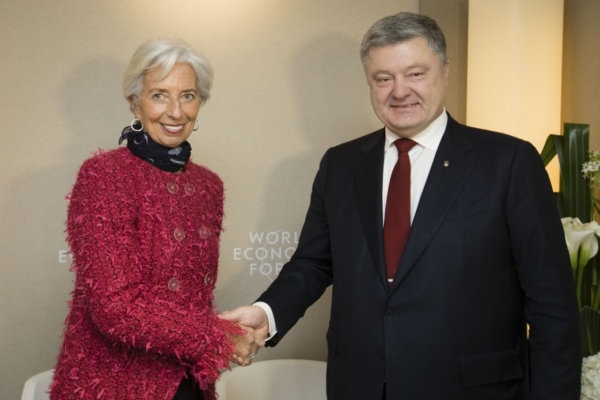It has again taken Ukraine many months to break down the domestic opposition of vested interests in order to qualify for much-needed international assistance. President Volodymyr Zelenskyy recently signed into law two key bills: one aimed at turning farmland into a sellable commodity, and the other to prevent owners of failed banks that had to be nationalized from being able to reclaim them. Having finally pushed through these important prerequisite reforms, he now expects to receive much-needed billions of dollars in loans from international financial institutions to help Ukraine fill the budget gap that opened up as a result of the ongoing coronavirus crisis.
The International Monetary Fund (IMF) announced, on May 22, that a staff-level agreement was reached with Kyiv on a $5 billion stand-by arrangement to help Ukraine overcome the economic shock stemming from the COVID-19 pandemic (Imf.org, May 21). The agreement is now subject to approval by the IMF board, after which Ukraine’s central bank (the National Bank of Ukraine—NBU) expects an additional $3 billion in assistance from the European Union, the World Bank and the governments of Canada and Japan (BBC News—Ukrainian service, May 16). The EU, in particular, is expected to lend €1.2 billion ($1.32 billion) (Mof.gov.ua, April 22).
Ukraine hoped to obtain billions of dollars from the IMF and the EU last year. But nothing came in early 2019, prior to Zelenskyy’s election as president, because the coalition that had backed his predecessor, Petro Poroshenko, had repealed key laws and regulations that were supposed to prevent the illegal enrichment of officials. Whereas, after Zelenskyy’s election, in the second half of 2019, international aid was held up again, this time by the new governing team’s signaling that it would reconsider the 2016 nationalization of Ukraine’s largest bank, PrivatBank. The state’s buyout of the over-leveraged PrivatBank for $5.5 billion had been agreed with the IMF. Furthermore, the IMF made clear to Zelenskyy’s administration that time had come to lift the almost 20-year-old moratorium on farmland sales, which several of his predecessors had promised to lift, but never followed through on.
The IMF offered $5.5 billion dollars last December, but Kyiv continued to drag its feet over the adoption of the decisions required by the international lender, so the deal was withdrawn. The subsequent coronavirus pandemic turned out to be a blessing in disguise. Before the outbreak, Zelenskyy and his political faction, Servant of the People (SoP), which controls Ukraine’s unicameral parliament, apparently thought Ukraine could do without international assistance. The ruling party effectively rejected the adoption of the IMF’s requirements in favor of supporting the vested interests of the oligarchs. Ukrainian oligarchs wanted to preserve the status quo in agriculture and to regain control of the banks that failed in 2014–2016 because they had used those financial institutions to issue loans to their numerous loss-making firms. But the coronavirus lockdown created a hole in the state budget equaling 7.5 percent of GDP, which only institutional investors could fill. Therefore, the Zelenskyy administration was forced make some hard choices between continuing to appease politically friendly oligarchs versus pursuing the national interest.
On March 31, the parliament passed legislation lifting the ban on farmland sales. In line with the bill, which Zelenskyy signed into law on April 28, these types of transactions are to be allowed from July 2021, so millions of landowners should have an alternative to cheaply leasing their plots to big agricultural holdings. At the same time, many provisions of the law diminish Ukraine’s investment potential. For example, it will be forbidden to sell more than 100 hectares of land to one person, companies will be allowed to buy farmland only starting in 2024, and farmland may not be sold to foreigners until a referendum on the matter passes, while no timeline for such a referendum has been set (Liga.net, April 28).
Read More: Moratorium on land sales no more: how Ukraine’s land market will operate with the new law
It has proven more difficult to push through parliament the bill on bank resolutions. The bill was doggedly opposed by PrivatBank’s former owners, who sued Ukraine (both in Ukrainian courts and abroad) over its nationalization and apparently hoped that Zelenskyy would take their side. The mass media outlets of one of PrivatBank’s former co-owners, Ihor Kolomoyskyi, notably backed Zelenskyy’s presidential election campaign in 2019, and several people linked to Kolomoyskyi were elected to parliament on SoP lists last summer (see EDM, February 11, 2019, April 23, 2019, June 19, 2019, July 15, 2019, February 24, 2020). The parliament had to spend several weeks overriding over 16,000 amendments that were submitted to the bill by people’s deputies reportedly linked to Kolomoyskyi, in an attempt to postpone its approval indefinitely. The national legislature even had to urgently tweak its regulations, retroactively limiting the number of amendments that can be proposed per piece of legislation (Pravda.com.ua, April 16).
Finally, on May 13, the parliament overwhelmingly passed what came to be nicknamed the “anti-Kolomoyskyi” bill, by 270 votes “in favor” in the 450-seat chamber, including 200 SoP votes. The bill, which Zelenskyy signed into law on May 21, makes it impossible for the owners of failed banks to reclaim them. They can only hope for monetary compensation, which will be a complicated process, including an independent audit (Nv.ua, May 13). Commenting on the bill’s adoption, Ukraine’s central bank said it categorically prevents the return of “zombie” banks to the market (Facebook.com/NationalBankOfUkraine, May 21).
Read More: Parliament votes for crucial “anti-Kolomoiskyi” bill, opening door for IMF support
The Zelenskyy-controlled legislature’s successful adoption of these two crucial bills required by the IMF may help dispel the myth of a comedian-turned-president who has to please oligarchs in exchange for their support (particularly via their media platforms). Once the IMF board approves new assistance, which is expected to happen within a couple of weeks, Ukraine’s fiscal system should be out of danger for the time being, despite predictions of GDP decline by 5–8 percent this year.
Read More:
- Ze First Year: How Zelenskyy’s presidency changed Ukraine
- Parliament votes for crucial “anti-Kolomoiskyi” bill, opening door for IMF support
- Ukraine’s COVID-hit budget will collapse without IMF loan
- Indispensable oligarchs: Ukraine turns to business leaders to support anti-coronavirus efforts
- Ukrainian parliament approves at first reading bill against oligarch Kolomoiskyi to receive IMF loan
- Moratorium on land sales no more: how Ukraine’s land market will operate with the new law
- Inside Zelenskyy’s land sales bill and Ukraine’s land reform controversy
- Ukrainian parliament approves at first reading bill against oligarch Kolomoiskyi to receive IMF loan
- Ex-National Bank director’s house burns as deal suspected between Zelenskyy and top Ukrainian oligarch
- What Ihor Kolomoiskyi hopes for in the last battle of Ukrainian oligarchs
- Oligarchic shadow of Ukraine’s 2019 elections
- In Ukraine, oligarchs set the election agenda using their TV
- Russian oligarchs in Europe: soccer, churches, and working for the Kremlin





